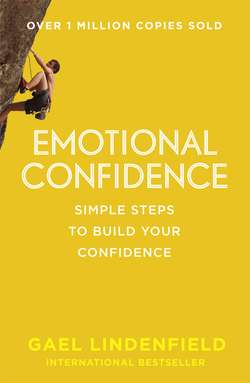Читать книгу Emotional Confidence: Simple Steps to Build Your Confidence - Gael Lindenfield, Gael Lindenfield - Страница 33
WHAT ROLE DOES ‘NURTURE’ PLAY IN SHAPING OUR EMOTIONAL RESPONSES?
ОглавлениеOnce again we are in a difficult area if we are searching for proven facts and scientific laws. There is still much disagreement, between both psychologists themselves and between psychologists and other experts in this field. From my own practical involvement I am firmly convinced that the impact of our life experiences (i.e. ‘nurture’) does have a very great bearing on our emotional selves.
There are four main areas where nurture seems to play a significant part in shaping our emotional experiences:
1. Nurture Helps Set the Threshold Point at Which Emotions Are Habitually Aroused
For example:
– how many times you need to be let down before you will tend to feel despair
– how loud someone has to shout to make you feel frightened – how little needs to be happening before you will usually begin to feel bored.
As noted already, our individual threshold points will in part be fixed by our biological and genetic make-up but, as we know already, our emotional responses are also heavily influenced by the personal meaning we give to the triggers which send the signals to our brain.
So although some of our judgements concerning what is good or bad for our well-being are instinctively made (most animals will immediately feel fear when they are physically attacked), the vast majority have been formed by our life experiences.
To illustrate this factor let’s look at the reactions of two people from different countries to a rainy day. As an English person I might not even notice the weather until the afternoon; then I might shrug my shoulders and feel mildly disappointed. On the other hand, one of my friends from the parched land of southern Spain might instantly become excited and feel constant pleasure throughout the day as his ears pick up the sound of raindrops.
The point at which emotion is triggered in each of us by the rain would be determined partly by our cultural temperaments but partly by the significance we have learned from our experience of life to attribute to rainy days according to their potential impact on our well-being.
There is yet another factor which can have a bearing on our emotional threshold: the sense of personal power we have regarding the rainy day. Let’s imagine the rain was preventing us both from doing something special which we had planned for the day. I might feel instantly frustrated by my powerlessness against the elements. My friend’s response might be to stay calm and pray for sunshine. Because he has been taught to believe that he can do something about changing the weather, his threshold for emotional arousal on this occasion would be much lower than mine.
